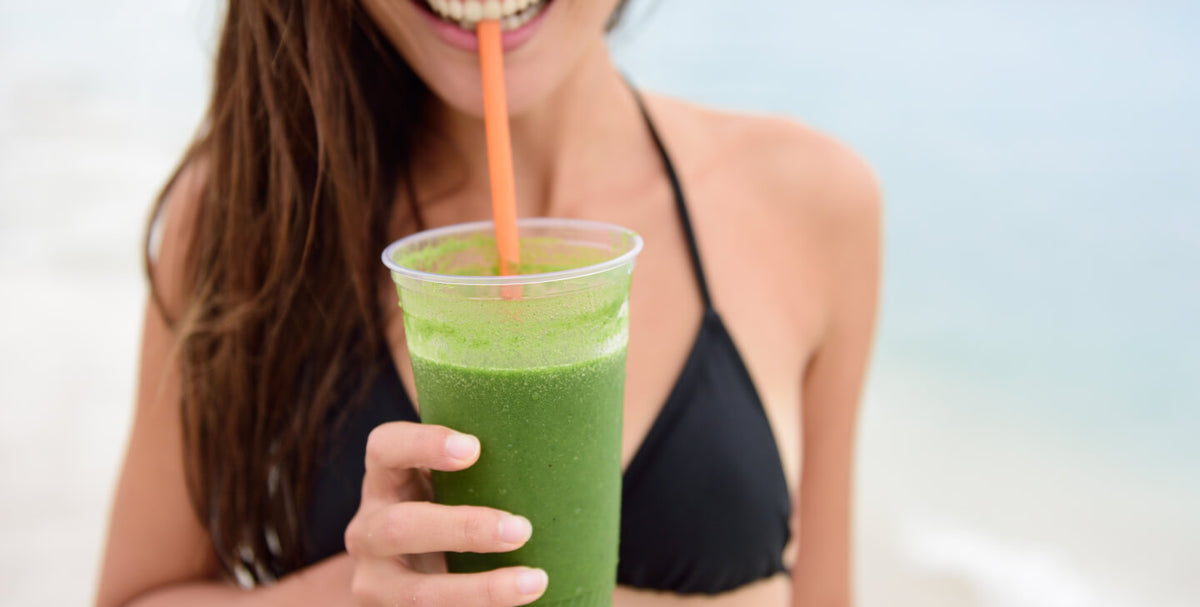The Dos and Don’ts of Juice Fasting

Juice fasting: A cleanse, a detox, a daily practice for good health? A high-speed path to fat loss?
Juicing and juice fast plans are by no means a new practice, but it had a spike in activity following the popular 2010 documentary Fat, Sick and Nearly Dead, a film in which Joe Cross takes part in a 60-day juice fast to regain his health.
In the film, Joe sets out to show how juicing (and perhaps more importantly, ridding his life of highly processed junk food, a high-stress job, and low activity levels) can take you from starting your day downing a handful of medications to starting with a glass of nature’s medicine: food.
The result? Joe lost 100 pounds and became medication-free. His documentary blew up and was followed by Fat, Sick and Nearly Dead 2 and a variety of recipe books.
Fred Bisci, PhD, head of the Spartan Nutrition Board, discovered the benefits of juicing early in life and has been sharing his understanding and knowledge of the benefits in his practice for the past 50 years. You can read all about his approach, the benefits, and how to incorporate his practices in his book Your Healthy Journey: Discover Your Body’s Full Potential. In it, Fred explains, “It starts with what you leave out, and then it’s about what you put in.” Read The Spartan Diet: A Raw Diet Plan for Athletes to learn more about Fred’s raw food diet for athletes.
Related: Is the Celery Juice Craze Justified?
Like so many other nutrition approaches, people can make mistakes when they go in uninformed and take it to extremes. The Spartan approach is always the same: keep it simple. Here are some simple dos and don’ts of juicing.

Do Make Your Own
As with anything, making your own food or drink at home gives you control over exactly what is in the finished product. Although there are many quality juices on the market, an equal number have unnecessary added sugars.
Do Focus on Vegetables Over Fruit
Vegetables and fruits both provide a variety of benefits. However, fruit naturally contains more sugar than most vegetables. Excess sugar, even from natural sources, is not necessary for every person. Excess caloric intake from any source can lead to unwanted weight gain or difficulty attaining your ideal body weight and composition. Choose vegetables over fruits for a majority of your juicing to reap the benefits of plant nutrients without the extra sugar.
Related: 5 Reasons to Drink Aloe Vera Juice

Don’t Abuse a Juice Fast
Don’t use a juice fast, or any fasting protocol for that matter, as an excuse to neglect proper nutrition the rest of the time. Fasting can be a beneficial approach to refocusing your nutrition or helping with recovery, but juicing should not be used as a tool to purposefully overindulge or neglect proper nutrition. If you find yourself thinking a juice fast gives you a free pass to binge all weekend because you will fast for the next three days, then you may have lost sight of the purpose.
Do Individualize Your Juice Fasting
Anyone can benefit from the cleansing components of a juice fast. It’s important to remember that a juice fast or starting your day out with juice can be individualized to meet your needs and reach your goals. Keep in mind what you will take it in from the juice and compare that to the amount of energy you’re going to need that day.
Someone who is new to a healthy lifestyle and is not taking part in strenuous activity may find that three-day juice fasting can meet their energy needs. However, an athlete in the middle of a periodized training plan looking to optimize performance may lack adequate energy intake for their training. This can result in decreased performance and increased risk of injury or illness. The duration and extent of your juice fast should align with your current health status and goals.
Related: 5 Mistakes You're Making with Your Smoothies
Do Know the Enzymatic Benefits to Juice Fasting?
“The same enzymes that bring the plant to maturity complement our own enzymes in the small intestine. Most of the fiber is removed in the juicing. Because of this, the juice passes through the stomach very quickly and is available to provide energy in a matter of minutes. Of course, to do this the juice should be drunk on an empty stomach. If you drink it with food, it could cause bloating or gas. Blood sugar does not go up or down in spite of the sugar because of the combination of the ingredients and the nutrient content. The juice provides more energy to perform with less calories because there is almost no energy expended for digestion.”
Fred’s Favorite Juicing Recipe
What You’ll Need
- Good quality juicer (Cuisinart and Hamilton Beach are both great)
- Carrots, celery, apples, greens: “One of my favorite juices is carrot, celery, and apple with either kale or spinach. It’s freshly prepared with organic vegetables in equal liquid amounts (four ounces each). This is loaded with vitamins, minerals, and enzymes.”
What to Do
- Wash the produce thoroughly
- Cut to size to fit into the juicer tube
- Slowly juice all the produce, alternating between the juiciest and least juicy to keep things flowing
- Re-juice the pulp
Juice Fasting Tips
- Wash produce thoroughly to remove bacteria
- Re-juice the pulp once to get those last drops of nutrition
- Drink it up! Fresh juicing means no preservatives, so two to three days in the fridge is your maximum shelf life. You can also try pouring juice into ice cube trays and freezing it for up to 10 days.
- Whether you prefer juicing or the Spartan favorite of fresh, whole, in-season veggies and fruits, remember that the approach is always the same: eat real foods, and keep it simple.




